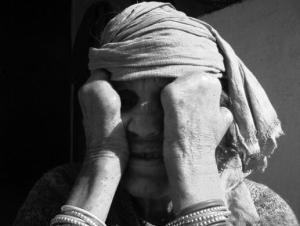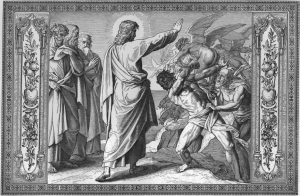
Leprosy was a term used for a variety of skin conditions that were more or less serious but all of which were disturbing. Today, the leprosy known as Hansen’s disease is curable by modern medicine so we don’t see it much in the West. In ancient times this disease was a death sentence where people were cast out of society and progressively took on the appearance of corpses as their bodies slowly decomposed. The harshest part of this disease was the fact that it caused the person who contacts it to also become ritually unclean or impure. Not only were they sick, but they were cut off from their people and the worship of God.



